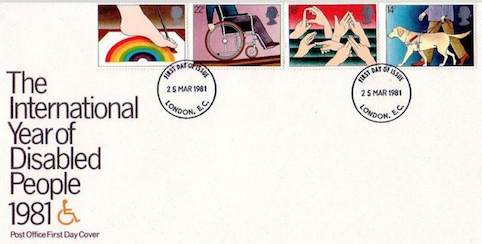
To mark Disability History Month LJMU History will be hosting an event exploring disability in the past. All are welcome.
Talk one: Monika Barr, Disability Goes Global: the Significance of the International Year of Disabled Persons (1981)
Approximately 10%-15% of the world’s population is estimated to be disabled and this number is expected to rise in the next decades. How did disability become a global concern and how can the concept be understood in a multicultural world? The talk will address this question by presenting some of the preliminary results of the collaborative research project Rethinking Disability based at Leiden University that undertakes the first study of the far-reaching implications of the United Nations International Year of Disabled Persons (IYDP, 1981) across the globe.
Talk Two: Gemma Almond, ‘A family in the most deplorable situation’? Interrogating Disability and Parenting from a Historical Perspective
The conceptualisation of disabled parents as ‘bad’ parents has received considerable scholarly and media attention in recent years. Studying the realities- as opposed to the perceptions of disabled parents’ experiences- establishes a narrative of disabled people as active agents in their own homes. A move away from the study of disability in relation to work and the public sphere raises a number of interesting questions about how you define disability and the experience of disability both historically and today. t challenges the association of disability with ‘dependence’ and ‘burden’. This talk will analyse how we conceptualise and view disability and what we might mean by disability history or its purpose. It will argue that a social model of disability only takes us so far and that exploring the experiences of disability in the family and home offers new ways to provide agency.


